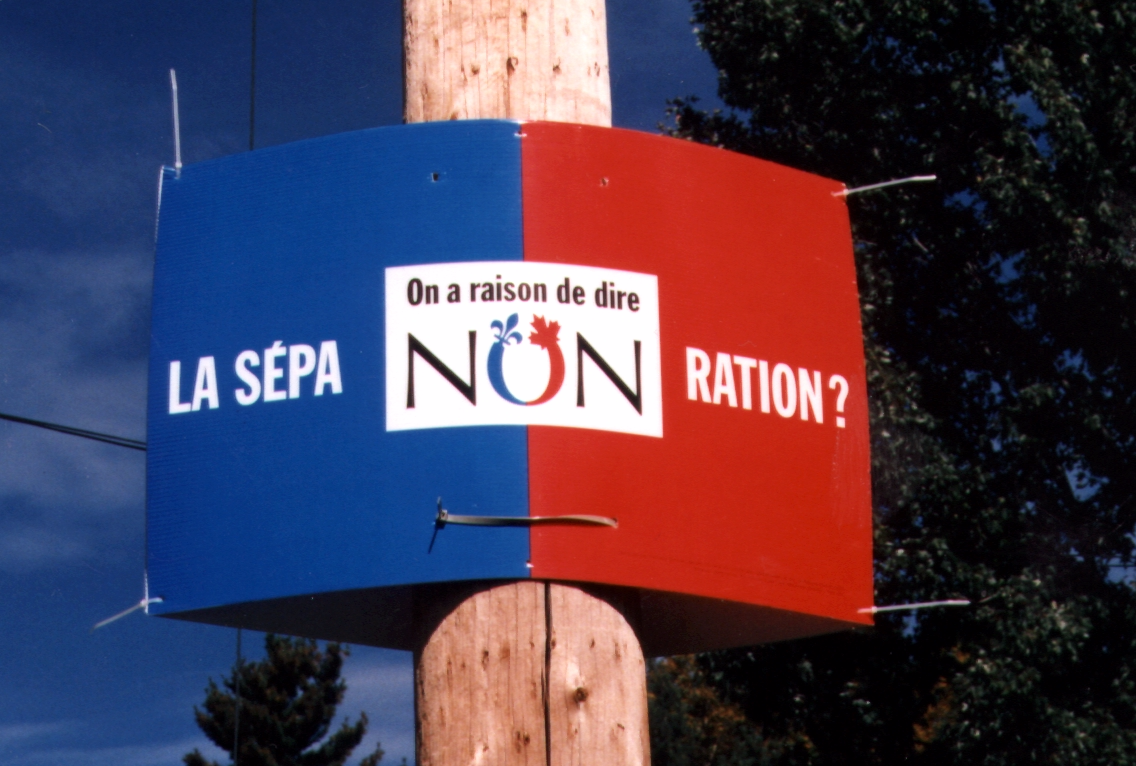Marino Greco
Canada is celebrating a milestone.
Twenty years ago today, Quebecers voted “No” to independence from Canada in the 1995 referendum.
The failure of the Meech Lake Accord and the Charlottetown Accord, along with the patriation of the Canadian constitution without Quebec signing on, left the province feeling sidelined.
These and a myriad of other political factors resulted in the second referendum in 15 years to decide the sovereignty of Quebec.
According to National Post Quebec correspondent Graeme Hamilton, the “Yes” vote didn’t really start gaining steam until then Bloc Québécois leader Lucien Bouchard took on the role of “Chief Negotiator” for the movement.
“His title was negotiator but in effect he was the lead campaigner. He could really rouse people with his speeches and he managed to start a movement,” Hamilton said.

Chief Negotiator for the “Yes” movement and Bloc Québécois leader Lucien Bouchard was instrumental bolstering support for Quebec sovereignty. (Antoine Taveneaux/Wikimedia Commons)
As it became apparent that a win for separatists was a real possibility a large number of Canadians traveled to Quebec to participate in a “love-in,” a rally to express their desire for the province to remain a part of Canada.
How that rally influenced the vote is up for debate.
Director of Canadian studies at University of Toronto Nelson Wiseman said it may have fueled separatist’s desires for an independent Quebec.
“The people going to Quebec hurt the ‘No’ cause,” Wiseman said.
“It was seen as condescending, a lot of university students and young people went there. (Quebecers) saw it as a party,” he added.
Hamilton on the other hand said he is unsure about how much of an influence the rally had on the final result, but agrees that it did not sit well with separatists.
“That rally is often cited as a major turning point. By the sovereignists it was seen as breaking the rules,” Hamilton said.
“The fact that people were given cheap tickets was essentially seen as illegal spending in favour of the ‘No’ campaign,” he said.
The immediate fallout of the election was a relief for a majority of Canadians but created a divide in Quebec, Wiseman said.
“The referendum was very emotionally divisive in Quebec. Families were divided. Workplace colleagues suddenly found themselves on opposite sides of the fence,” he said.
“Because of that people didn’t want to engage in another such debate which really seemed to be tearing at the fabric of Quebec society. That is still there.”
Whether another referendum will happen anytime soon is unclear.
Hamilton said it’s unlikely for the time being.
“There’s always a chance but it seems pretty remote at the moment,” he said.
“We just have to look at the federal election last week. Even though the Bloc added a few seats, their share of the vote declined and their leader, Gilles Duceppe, was defeated in his own riding,” he added.
Hamilton added that while the Parti Québécois is pushing for another referendum, they lack a clear plan to make that a reality and that campaigning on a separatism is a losing recipe.
Wiseman, however, said the issue may resurface if the province feels slighted again.
“All you need is something that provokes Quebecers into think that they’re being patronized,” he said.


